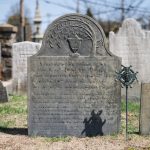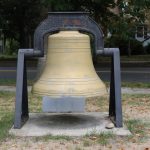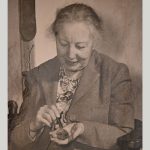SAUGUS — With the election just a week away, Town Meeting Member Peter Manoogian gave two talks at the Saugus Public Library, discussing the history of the town’s government and how unique it is compared to surrounding cities and towns.
Manoogian spoke about Brent Wilkes, a UMass undergraduate who chose to write his thesis on Saugus around 1973, focusing on some of the hurdles the town faced as it shifted to a government with a town manager.
Wilkes believed that the town needed to be educated in how a government with a town manager was supposed to run.
Manoogian went over the different forms of government that can be found in Massachusetts, as seen in Edgar Litt’s book “The Political Cultures of Massachusetts.” The forms included the patrician elites, the yeoman communities, the workers, and the managerial class community. However, he noted the Saugus didn’t fit into any of these categories.
“We are the fifth typology. It’s called a shopkeeper community. The shopkeeper community is one that’s based around a lot of small businesses, neighborhoods, and we have a lot of unenrolled voters… And in a shopkeeper community, they’re usually along a highway. We have Route 1,” he said.
He explained that these communities popped up after World War II and that you wouldn’t find this type of community in a place that is inaccessible.
Manoogian then went on to explain that another unique thing about Saugus was that it went from an open Town Meeting format to a representative Town Meeting. This happened in 1928. Then the idea came to have an organized government where resources could be better managed. The town manager idea floated around, but it’s believed to have been stamped out by World War II.
After the war, Saugus was experiencing some of the highest tax rates in all of Massachusetts, and the people started to get fed up. Saugus Representative Frederick Willis would take the time to single-handedly put together Chapter 17 of the Acts of 1947, which would establish a town manager government in Saugus.
“The first thing that makes this government unique is this charter. This is not a home rule charter. This is a charter that you have to go to the legislature and ask permission to amend because it is a state law,” Manoogian said. This means that if Town Meeting were to vote to change the charter, which is a special charter, it would then have to go to the House and the Senate and then be signed by the governor. If it has to do with voting, the people of Saugus have to vote on it.
Saugus would become the only town to have a city-cycle election, meaning they happen in the fall, and it is the only town in Massachusetts that does not have a staggered election.
Manoogian then dove into Wilkes’ thesis about the town manager government. The research showed a clash between the town managers who were chosen and the Board of Selectmen, who had to give up the power they had due to the new form of government.
Manoogian highlighted how the first manager, James Shurtleff, lasted from 1948-1950 due to friction. Then Norman Young lasted from 1950-1952, as a power struggle began, and the Board and Young traded words before his departure.
Manager after manager came to town only to leave in short stints. Wilkes noted in his thesis that when a new Board was elected, they would push out the manager and hire one they felt they could control. Then, the next Board would do the same, causing the cycle.
Manoogian then spoke on the unique town charter, which included Article 1, the formation of the representative town meeting, and Article 2, the establishment of a town manager.
It showed how the Board of Selectmen was the policymaker while the manager was the administrator.
The charter, which can be found on the Town website, goes into detail on the interesting government that Saugus has formed over the years, taking shape through a strong relationship between the town manager and the Board of Selectmen.



